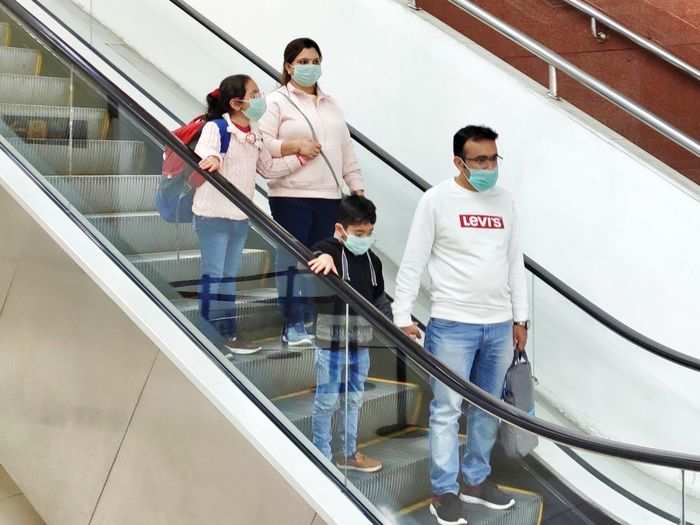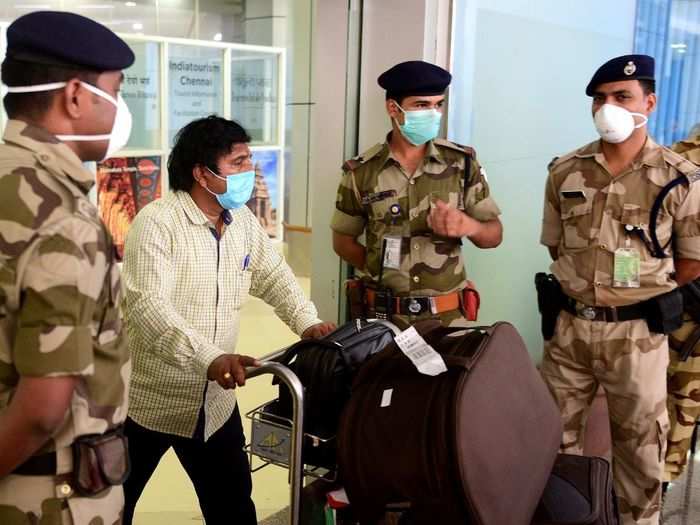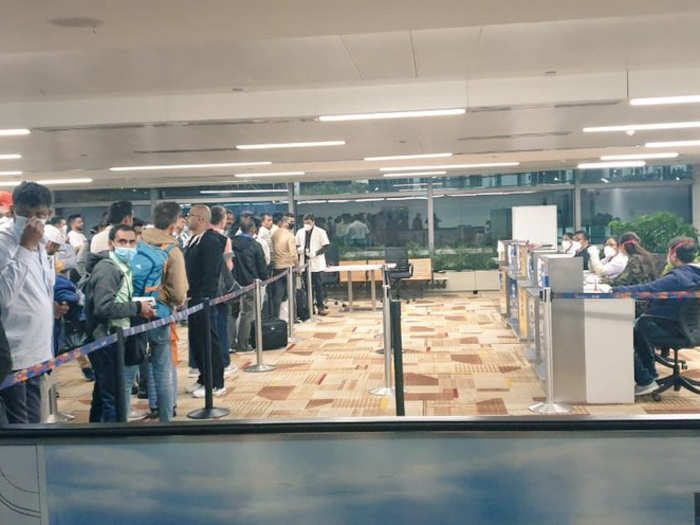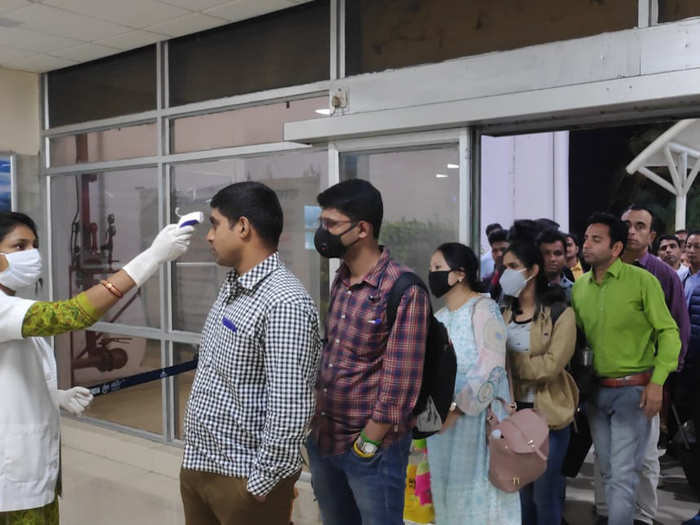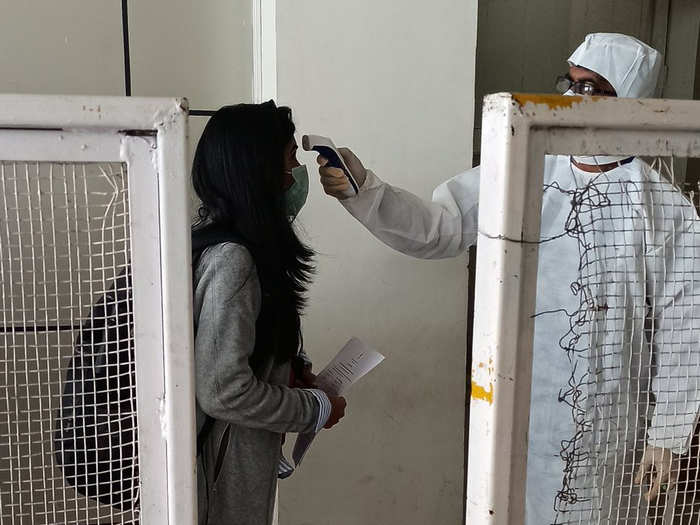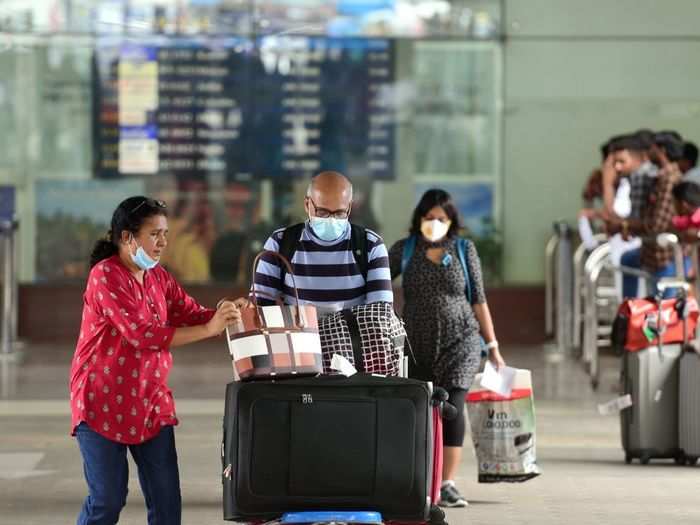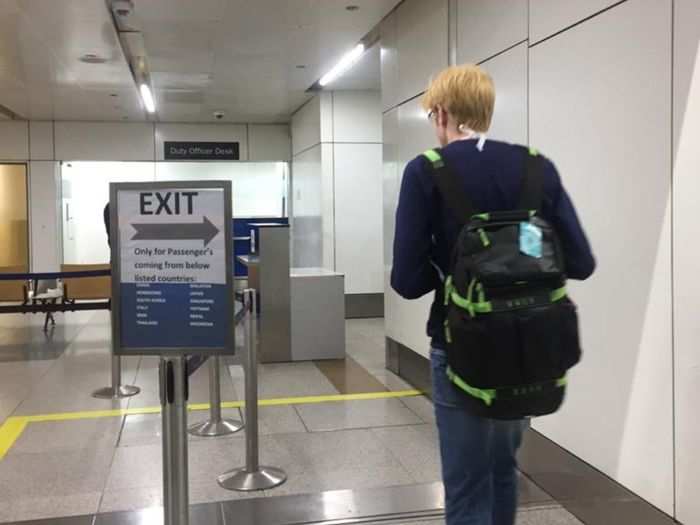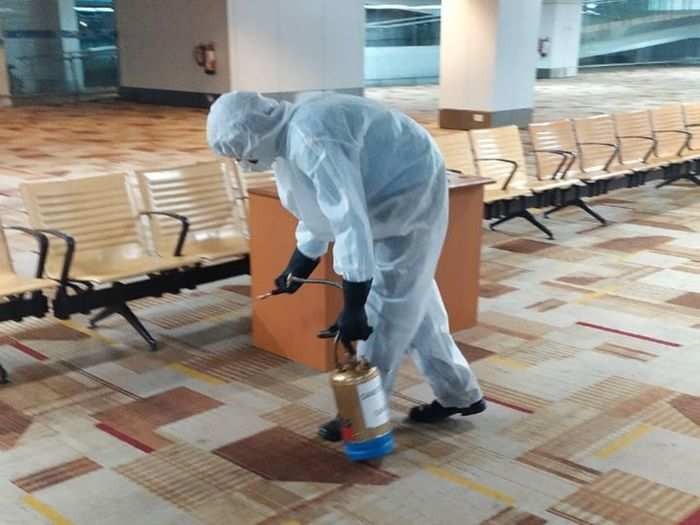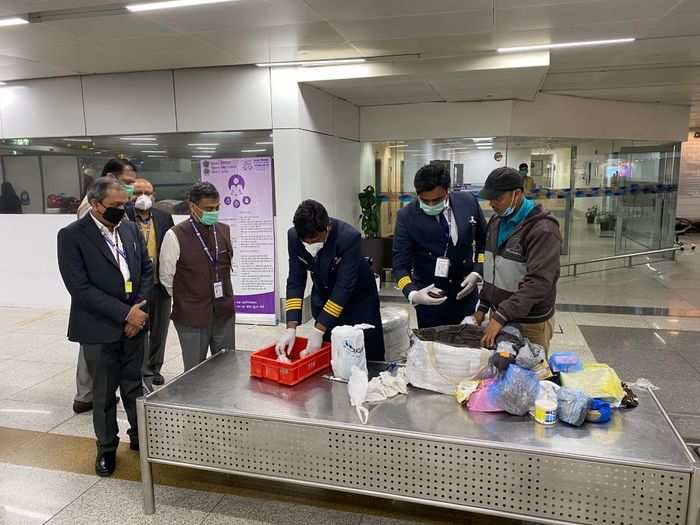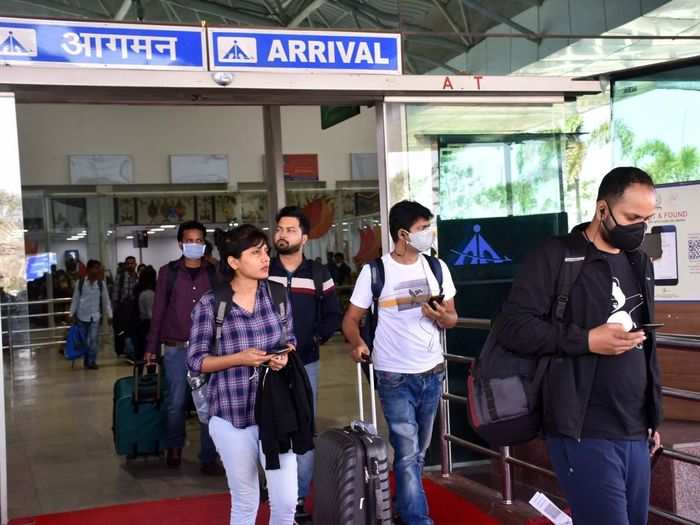Passengers for the 12 countries on the DGCA’s watchlist are segregated on arrival. There are dedicated corridors for incoming flights from at-risk countries.
However, it’s not just international passengers who are screened for symptoms. Domestic passengers also have to undergo mandatory screening before being cleared to leave the airport.
Airports are using non-contact infra-red thermometers to check passengers for symptoms of the coronavirus.
If any individual is suspected or found positive for coronavirus, each airport has a segregated room where they can be quarantined.
The airports are undertaking extensive sanitation of all areas to reduce the risk of Covid-19 spreading.
Airport employees have been advised to wear masks and gloves to reduce the risk of infection — even those at customs who oversee suspicious baggage.


